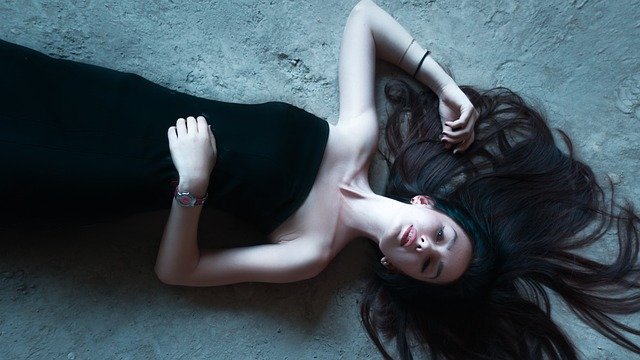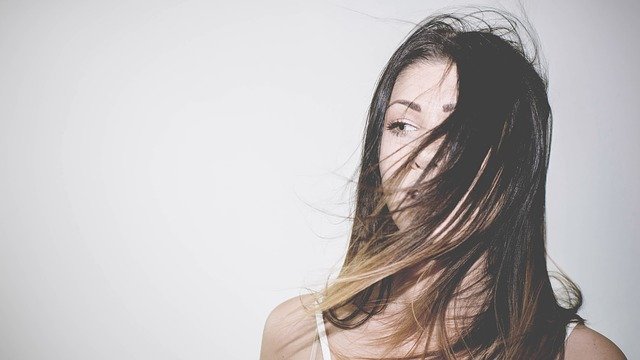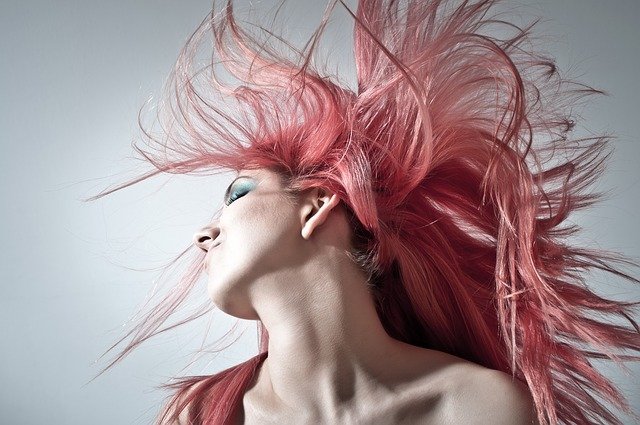Congratulations on your new bundle of joy! Postpartum hair loss is common due to hormonal changes but focusing on a gentle hair care routine can make a big difference. Use lukewarm water for washing to protect natural oils, and opt for sulfate-free shampoos to maintain moisture. Gently massage your scalp to boost circulation and stimulate growth. Choose lightweight styling products and consider a shorter haircut for added volume. Nourish your hair from the inside out by staying hydrated and eating a balanced diet rich in essential nutrients. With these tips, you'll soon discover more ways to support your hair's recovery.
Understanding Postpartum Hair Changes
During the postpartum period, you may notice considerable changes in your hair, which can be surprising and sometimes alarming. After giving birth, your body's hormone levels, especially estrogen, drop markedly. This hormonal shift often leads to increased hair shedding, a condition known as postpartum hair loss. It's completely normal, although it might feel unsettling to see more hair in your brush or shower drain.
Throughout pregnancy, high estrogen levels kept your hair in the growing phase longer, resulting in fuller and thicker locks. Once you deliver, these levels decrease, causing more hair to enter the shedding phase. This phase can last a few months, typically starting around three months after childbirth and often resolving by your baby's first birthday.
It's important to remember that postpartum hair loss is temporary. Your hair will gradually return to its pre-pregnancy state as your hormone levels stabilize. Meanwhile, you can manage your hair's appearance by opting for a shorter hairstyle, which can make hair look fuller. Additionally, using volumizing shampoos and avoiding heavy conditioning products can help maintain a more vibrant look. Patience and gentle care are key during this shifting phase.
Gentle Hair Washing Techniques
When it comes to washing your hair during the postpartum period, gentle techniques make all the difference. Your hair might be more fragile after giving birth, so it's important to handle it with care. Start by using lukewarm water, as hot water can strip your hair of natural oils and lead to dryness. Before applying shampoo, thoroughly wet your scalp and hair. This helps distribute the shampoo evenly and reduces the need for excessive scrubbing.
As you apply shampoo, use your fingertips to gently massage your scalp in circular motions. This promotes blood circulation without causing unnecessary stress on your hair strands. Focus on cleansing the scalp rather than the ends, as the latter can become dry and brittle. Rinse thoroughly to remove all shampoo residues, which can weigh your hair down if left behind.
When using conditioner, apply it mainly to the ends of your hair. This prevents the roots from becoming greasy while nourishing the parts that need it most. After rinsing, gently squeeze excess water from your hair instead of rubbing it with a towel. This minimizes breakage and helps maintain your hair's natural texture during this delicate time.
Choosing the Right Hair Products

Selecting the right hair products postpartum is essential for maintaining your hair’s health and vigor. During this time, your hair may be more fragile due to hormonal changes, so choosing gentle products is vital. Look for shampoos and conditioners labeled as sulfate-free since these are less likely to strip your hair of its natural oils. This helps in keeping your hair moisturized and prevents breakage. Additionally, integrating deep conditioning treatments into your routine can further bolster your hair’s strength and resilience. If you’re considering a color change during this sensitive period, explore the range of pregnancysafe hair dye options available that prioritize both safety and efficacy. These alternatives ensure you can enjoy a fresh look without compromising your hair’s condition or your overall well-being.
It's also beneficial to opt for products that contain natural ingredients like argan oil, coconut oil, or shea butter. These ingredients provide nourishment and help in strengthening your hair. Avoid products with harsh chemicals such as parabens or synthetic fragrances, which can further irritate your scalp and hair.
Consider using a leave-in conditioner or a detangling spray to make combing easier and reduce hair loss caused by excessive pulling. These products can help in maintaining smooth and manageable hair. Additionally, choose a lightweight styling product if you need to manage frizz or add volume without weighing your hair down.
Nourishing Your Scalp
Nourishing your scalp is an essential part of maintaining healthy hair postpartum. After giving birth, your body undergoes numerous changes, and your scalp might need some extra attention. Start by gently massaging your scalp with your fingertips for a few minutes each day. This simple act stimulates blood circulation, promoting hair growth and distributing natural oils.
Incorporate essential oils like rosemary or lavender into your routine. Mix a few drops with a carrier oil, such as coconut or jojoba oil, and apply it to your scalp. These oils have nourishing properties that can help strengthen your hair follicles and soothe any irritation.
Don't forget about hydration: drink plenty of water and consume a balanced diet rich in vitamins and minerals. Foods high in omega-3 fatty acids, like salmon and walnuts, and those loaded with vitamins A, C, and E, like leafy greens and berries, can make a big difference.
Finally, make sure your scalp gets a good cleanse. Choose a mild, sulfate-free shampoo to remove any buildup without stripping away essential oils. By focusing on your scalp health, you'll lay a strong foundation for your hair to thrive postpartum.
Styling Tips for Thinning Hair

With postpartum hair thinning, it's important to embrace styling techniques that add volume and create the illusion of fuller hair. Start by choosing the right haircut. A layered cut can give your hair more body and movement, making it look thicker. Also, consider a shorter style, like a bob, which can make your hair appear denser. When styling, use a volumizing mousse or lightweight styling spray. These products lift your roots and add texture without weighing your hair down.
Blow-drying can work wonders for adding volume. Flip your head upside down while drying to elevate your roots. Use a round brush to create more lift at the crown. When it comes to parting, switch it up. Changing your part can give immediate height and fullness, especially if you've been parting your hair the same way for a long time.
For finishing touches, opt for loose waves or curls. Curls naturally add dimension and make your hair seem fuller. You can achieve this with a curling wand or by braiding your hair overnight for heatless waves. Finally, avoid heavy styling products that can flatten your hair, and embrace lightweight formulas for a voluminous look.
Natural Remedies for Hair Growth
Natural remedies offer a gentle approach to promote postpartum hair growth. After childbirth, your body undergoes numerous changes, and your hair might feel the impact. Luckily, simple, natural solutions can foster healthier hair growth.
Start with a nourishing scalp massage using essential oils like rosemary or lavender. Mix a few drops with a carrier oil, such as coconut or jojoba, and massage it into your scalp. This boosts circulation and stimulates hair follicles, encouraging growth.
Incorporate a diet rich in vitamins and minerals crucial for hair health. Foods high in omega-3 fatty acids, like salmon or walnuts, can strengthen hair. Leafy greens, beans, and nuts provide you with iron and zinc, essential for healthy hair growth.
Herbal teas, such as nettle or horsetail, can also be beneficial. They're packed with silica and sulfur, both known to boost hair strength and shine. Drinking these teas or using them as a hair rinse can enhance hair growth naturally.
Finally, consider adding a biotin supplement to your routine. Biotin is a B-vitamin that supports hair health. Always consult with your healthcare provider before starting any new supplement to confirm it's right for you.
When to Consult a Professional

Sometimes, despite your best efforts, postpartum hair loss might feel overwhelming. You've tried every shampoo, oil, and remedy your friends and family recommended, yet nothing seems to work. It's important to recognize when it's time to consult a professional. If your hair loss is severe or persists beyond a year, seeking advice from a dermatologist or trichologist can provide you with tailored solutions.
A professional can assess your hair health and determine if there are underlying issues, like hormonal imbalances or nutritional deficiencies, contributing to the problem. They might suggest treatments you haven't considered, such as prescription medications, laser therapy, or specialized scalp treatments. These options can greatly boost hair regrowth and improve overall scalp health.
Don't hesitate to bring up any concerns during your appointment. Prepare questions about your hair type and specific issues you're facing. Being proactive means you'll get the most out of the consultation. Remember, reaching out to a professional isn't a sign of failure; it's a step towards reclaiming your confidence. Your hair's health is an important part of your well-being, and getting expert guidance can make all the difference.
Frequently Asked Questions
How Long Does Postpartum Hair Loss Typically Last?
You'll notice postpartum hair loss usually begins around three months after giving birth. It often lasts for around six months, but can extend up to a year. Don't worry, your hair will gradually return to its usual fullness.
Can Postpartum Hair Loss Affect Hair Color or Texture?
You might notice changes in hair color or texture during postpartum hair loss. Hormonal shifts can alter your hair's appearance, making it feel drier or curlier. It's important to moisturize and adjust your hair care routine accordingly.
Are There Specific Hairstyles to Avoid During Postpartum Shedding?
Like a delicate flower, your hair needs gentle care. Avoid tight ponytails or braids; they can tug at your fragile roots. Instead, opt for loose styles that won't cause additional stress or breakage during postpartum shedding.
Is It Normal for Hair to Become Oilier or Drier Postpartum?
Your hair can definitely become oilier or drier postpartum. Hormonal changes affect your scalp's oil production. Don't worry, it's normal. Adjust your hair care routine by using appropriate shampoos and conditioners to manage these changes effectively.
Can Certain Foods Exacerbate Postpartum Hair Loss?
You're wondering if certain foods worsen postpartum hair loss. While no specific foods directly cause it, maintaining a balanced diet rich in vitamins and minerals supports overall hair health, potentially reducing excessive hair shedding.
At a Glance
Embracing postpartum hair changes might seem overwhelming, but with the right care, you'll feel more confident. Don't worry about losing hair—it's temporary and normal! By washing gently, selecting the right products, and nourishing your scalp, you're taking crucial steps to restore your hair's vigor. Style smartly and explore natural remedies for growth, knowing there's always professional help if needed. Remember, you're not alone in this journey, and your hair will thrive again with patience and care.






